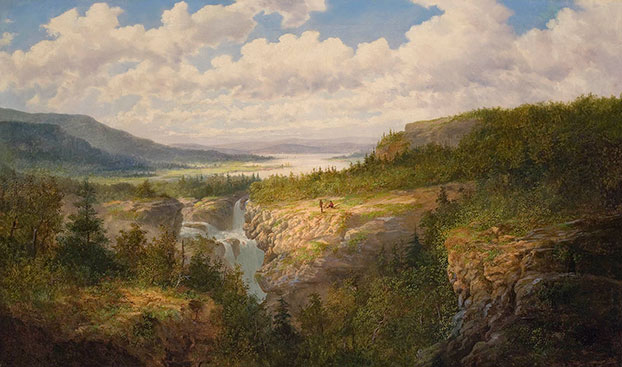
In I Kings 21, we see that Naboth did not feel that he had the right to sell the family land no matter how much money King Ahab offered. The land was not his except as a trust from his forefathers to the generations yet unborn.”
~~RJ Rushdoony
We have come to the place were every year another noble Southern family dies out, never to return. The effect that this renders is incalculable to us and incomprehensible to the mind not attuned to the appreciation of family and land. God grants land by providence and man’s chief method of glorifying God is by being a true husband and steward to the land which God has bestowed. Over the previous four centuries a particular people received a particular land. For many generations the land was loved, cared for; families grew and were loyal to what God had given them. Like Naboth, the true Southerner looked over the head of his moment and peered into the future, he could not do otherwise. The close connection to the land and the deep impression left by one’s ancestors had driven home the point that life is fleeting and great works can only come into focus when viewed through the lense of decades, centuries, and generations. Today this inheritance is squandered and with every passing day a farm which was built up by generations goes fallow.
Materialism has built a world obsessed with wealth that slips through the fingers, that isn’t worth having. The Southerner long scorned this materialism, his was a romantic war against the pressing tides of “progress.” The Southerner did not believe in the value of motion for motions sake. Why take steps toward one’s own ruin? As the urban life spread and man was increasingly cut off from land, family, and tradition, the South became a haven and an ideal for those who were dissatisfied with the march of industrial progress, city slums, and multiculturalism. For generations the Southern farmer grew those native products of cotton, tobacco, peanuts; raised hogs, and worked close to home. Our cities were not the metropolitan, faceless sprawls of New York or Chicago, rather they were the centers of trade and refinement which grow naturally in the midst of an agrarian people. Our communities were not cold, mercenary outposts filled with strangers, but windows into the foundation of a culture which believed not in senseless change but in seeking conformity with an unchanging ideal. It was these factors: the long range vision, the commitment to land, the stability of family, the memories of lessons learned long ago, that made the South a bulwark against religious liberalism and social fragmentation.
Yet today the South has lost the heart of her children. Once proud families bow out with hardly a notice and certainly no eulogy. Short-sighted children perch, awaiting their opportunity to sell off assets accrued over centuries to finance their education at universities that will make them good progressive materialists and pluck up their roots. Communities shift, no longer having the five, six, or seven families that once populated them; now down to only two. Farms grow little more than government approved soy beans and corn. The cities, having lost their agricultural foundation, drift into the fusion of idleness and industrial “busy-work.”
In short, the South is barely the South any more. South New Jersey is perhaps more appropriate.
Nearly a century ago, essayist and author Stark Young asked us the question, do we continue on our ways in memoriam or in defense? My family still maintains the defense, we give no eulogy, no graveside sentimentalities. Undoubtedly we are lost, but that which is lost may yet be found, only God knows.
Every family that dies out will never be revived. A patriarch must look from the grave down through history and see that his ancestors defected from what he worked for.
Every farm that is sold off will never be reconstituted. A plot which once knew the hopes and fears of a man and women engaged in that most noble of tasks, folk who walked the land and knew it, must now bear the weight of those soul-less box plants which “Americans” call the subdivision.
Will this trend cease? Will the hearts of the children return unto their forefathers? I pray so.
May God be pleased to work in the hearts of this people, to bind that which is broken, and to build up the waste places.
We seek not to go back, our aim must be to build and our eye must be on the future. We must endeavor as never before to go forth building into the future in a manner and spirit that is in accord with our past.
If anything is clear, it is that we can never go back, and neither this essay nor any intelligent person that I know in the South desires a literal restoration of the old Southern life, even if that were possible; dead days are gone, and if by some chance they should return, we should find them intolerable.
~~ Stark Young
An interesting commentary on the present is that people close to the soil appear to have longer memories than have the urban masses. Traditions there live for generations; what their grandfathers did is real to them. Consequently they may be said to assimilate lessons.
~~ Richard Weaver






